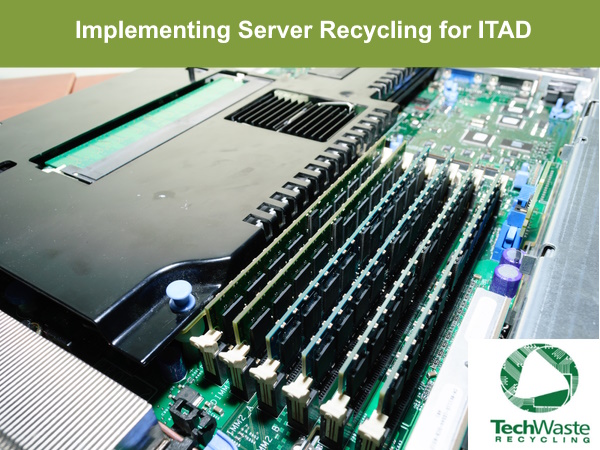Organizations’ efforts to reduce the leakage of sensitive data are becoming increasingly crucial. Lowering your company’s security vulnerabilities should be one of your top goals, and protecting the environment is a pleasant byproduct.
While there are a variety of measures you can take to construct a safer, greener organization, server recycling is a crucial service that you can utilize in your efforts to revamp your IT department.
Numerous corporations have depreciating servers that are no longer in use. Sadly, electronic waste poses a possible hazard to the environment, necessitating its careful and deliberate disposal.
Server Recycling for Green Disposal and Asset Administration
The servers your firm may have include the following.
- Proxy Server
- Mail Server
- Server Platforms
- Application Server
- Web Server
- FTP Server
- Collaboration Server
- Real-Time Communication Server
Along with other forms of electronic waste, servers are composed of components containing harmful substances. Among the toxic substances found in servers are beryllium, hexavalent chromium, cadmium, lead, mercury, and brominated flame retardant. Even metals such as copper and iron can contaminate the groundwater near a landfill.
The reckless disposal of e-waste containing these substances is hazardous to the environment, which is why rules require the recycling of servers.
Developing or Revising Your IT Asset Disposal Policy
Your firm is legally liable for the disposal of old servers, whether you recycle them yourself or pay a professional company to do it. Bear in mind that you are responsible for managing all of the IT department’s assets. As a result, you must identify a suitable method for recycling servers and other forms of electronic waste.
All outdated servers that are no longer in use must be discarded immediately owing to the risk of data breaches.
Hackers are capable of breaking firewalls and stealing any information stored on the server. This endangers your clients, staff, and vendors and becomes an even greater worry if you have remote employees using your servers, as numerous individuals in many regions will have access to sensitive information.
Your information security is most vulnerable during disposal
Merely discarding these obsolete servers facilitates hackers’ access to any data stored on them. Destruction and recycling of hard drives are essential for risk elimination. Getting Certificates of Destruction (CoD) from a recycling center can also provide protection against false legal claims.
Server Recycling Procedure
The different hardware components are disassembled when a server is recycled. Some businesses only dispose of unusable equipment by dismantling it and selling the remaining parts. The fact that recovered disks can be accessed and data recovered in part poses a grave risk.
Verify with your commercial recycler to ensure that all data-storing hardware is entirely destroyed, as not all electronic recyclers follow this protocol.
3 Primary Measures for Recycling Old Servers
There are 3 components to recycling outdated servers.
- Removal and collection of waste.
- Disassembling and separation of numerous components during the recycling process.
- Destruction of information and hard drives
4 Key Benefits of Professional IT Asset Disposition
Recruiting The Appropriate Recycling Company
Look for a recycling firm that is familiar with all Environmental Protection Agency regulations, has more experience, and can be relied upon to execute the work correctly. Your expenses should be all-inclusive and include all 3 components of server recycling.
Your firm utilizes servers and will at times require server recycling services. Employing an e-waste recycling firm to recycle these properly would give you peace of mind while protecting your data and the environment.
TechWaste Recycling is an R2-certified electronic recycling company that can manage your e-waste disposal. Call us to schedule a pickup. see service areas


































